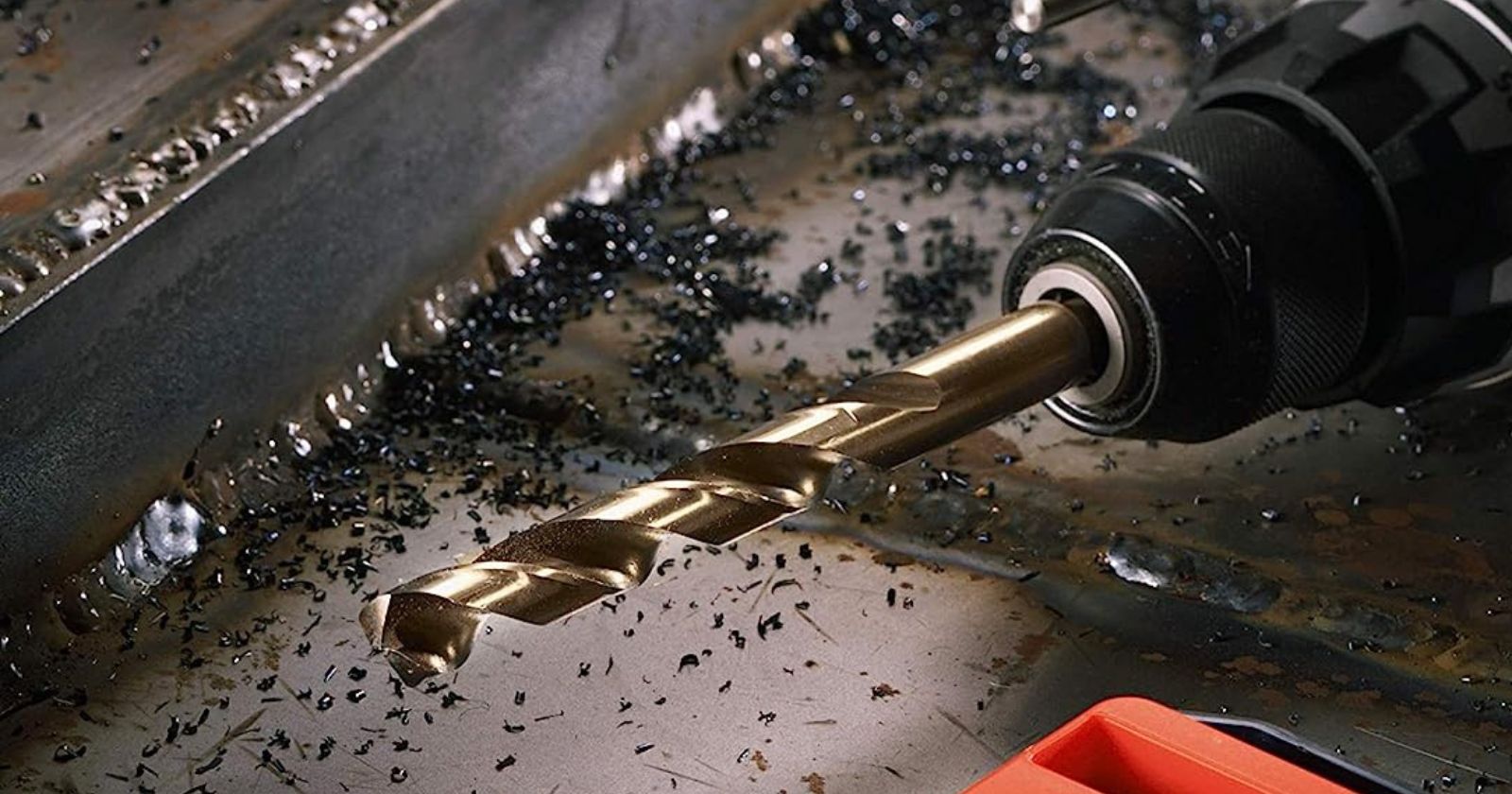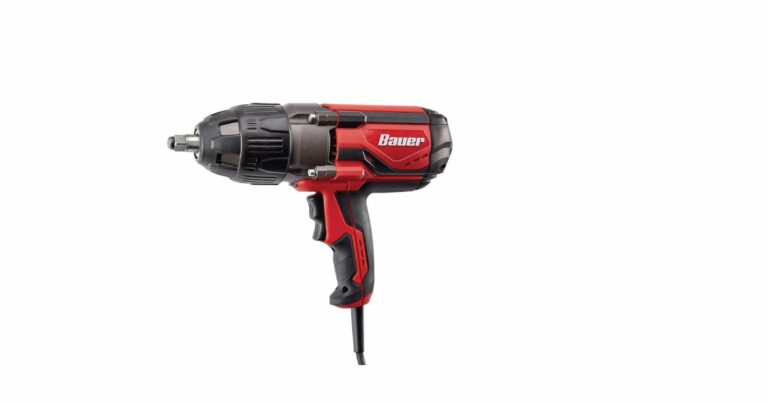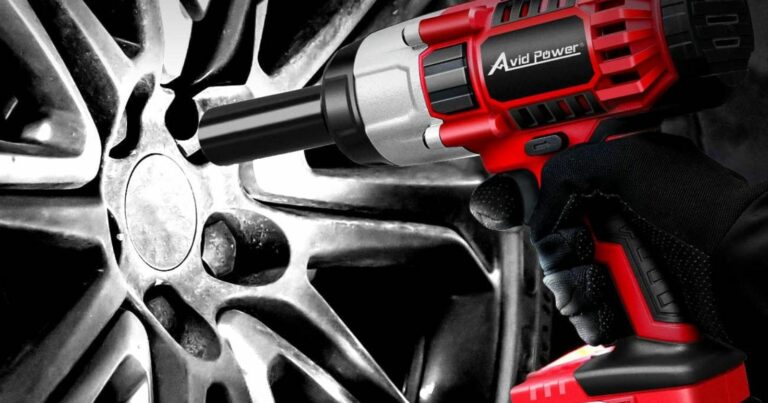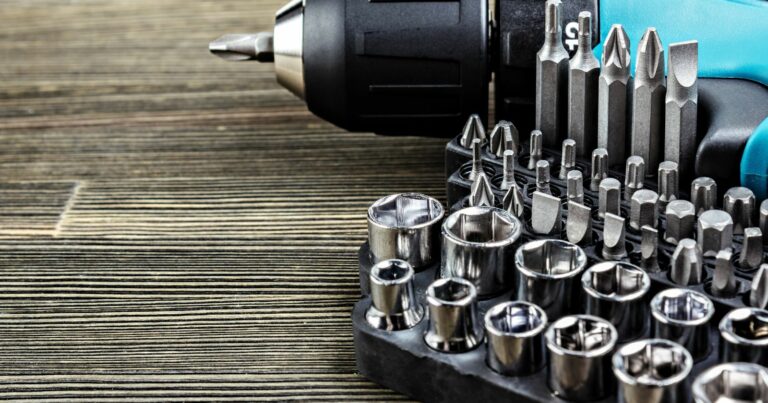The 5 Best Drill Bits For Drilling Out Locks In 2024
By the end of this article, you’ll learn About The Best Drill Bits For Drilling Out Locks
Picture this: I’m standing in front of a locked door, drill in hand, ready to get to work. I used to think any drill bit would do the job, but experience has taught me otherwise. The drill bit I choose is the linchpin of the whole operation it can make the difference between a job well done and a complete disaster. That’s why I can’t stress enough how crucial it is to pick the right drill bit when you’re drilling out a lock.
You see, the drill bit is more than just an accessory; it’s the key to the whole process. It’s what bores into the metal, disengages the locking mechanism, and ultimately, lets me in. But here’s the kicker: not all drill bits are up to this task. Some are great for wood, others excel with metal, and some are specialized for unique materials. Locks, especially the good ones, are often made of hard metals to deter any tampering. So, you need a drill bit that’s not just good but exceptional for the job.
Choosing the wrong drill bit isn’t just a minor inconvenience. First off, you risk damaging the lock even more, making it a Herculean task to open or, worse, requiring a total replacement. Then there’s the issue of wear and tear. A subpar drill bit can wear out in the blink of an eye, forcing me to stop everything and hunt for a replacement. And let’s not forget about safety; a faulty or ineffective drill bit can snap or get stuck, posing a real risk of injury to me and anyone else nearby.
In this guide, I’ll walk you through the maze of drill bits suitable for drilling out locks. We’ll delve into crucial factors like the material of the drill bit, its durability, and its effectiveness. Whether you’re a seasoned handyman like me, a professional locksmith, or even if this is your first time facing a lock issue, this guide is your go-to resource. I aim to arm you with the knowledge you need to make an informed choice for the best drill bits for drilling out locks.
So, let’s get started and demystify the world of drill bits, making sure you’re more than ready for the job ahead
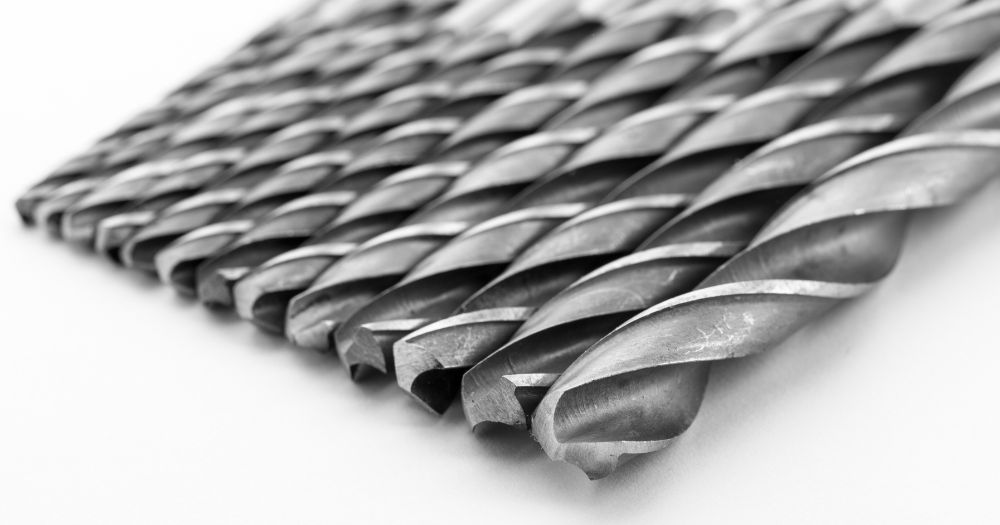
I’ll give you more details in the below article.
Why Choosing the Right Drill Bit Matters
You know, I used to be one of those folks who thought, “A drill bit is just a drill bit. How different could they really be?” Boy, I was wrong. The drill bit you pick isn’t just a minor detail; it’s a game-changer. Allow me to unpack why this choice is so critical.
The Material Matters: It’s Not a One-Size-Fits-All Game
First things first, let’s talk about what you’re drilling into. Locks are usually crafted from tough metals like brass, steel, or even fortified steel for those high-security situations. Now, picture using a drill bit meant for wood on these robust materials. Trust me, you’re setting yourself up for failure. It’s like trying to slice a thick, juicy steak with a plastic knife; you’re just asking for trouble.
Efficiency and Time-Saving: Because Time Waits for No One
Whether I’m on a locksmith job with a ticking clock or I’ve locked myself out on a cold winter night, time is a luxury I can’t afford to waste. A drill bit that’s tailored for the material I’m working on is my best friend in these situations. It gets the job done quickly and cleanly, saving me from a drawn-out, hair-pulling ordeal.
Longevity of Your Tools: Think Long-Term
I’ve learned that the lifespan of my tools isn’t just about how I use them; it’s also about what I use them with. Drill bits have a shelf life, just like anything else. But when I choose the right one, I’m not only prolonging its life but also doing a favor for my drill. A mismatched drill bit wears out faster, and the extra effort needed can strain my drill over time. So, in the grand scheme of things, the right drill bit is also a money-saver.
Suggested Reading: The 5 Best Places to Sell Used Power Tools In 2023
Safety Concerns: It’s More Than Just a Drill Bit; It’s Your Well-Being
I can’t stress this enough: safety first. A subpar drill bit is a recipe for disaster. It’s more prone to breaking or getting jammed, and that’s a safety hazard waiting to happen. Broken bits can shoot off like bullets, and a jammed bit can make the drill jerk unpredictably. Both scenarios are accidents waiting to happen, and trust me, they’re avoidable. The first step? You guessed it choosing the right drill bit.
In Summary: Your Drill Bit is Your Wingman
So, the next time you catch yourself thinking any old drill bit will do the trick, take a moment to reconsider. The right drill bit isn’t a luxury; it’s a necessity. It’s not just about getting the job done; it’s about getting it done efficiently, safely, and economically. In the realm of drilling out locks, your drill bit isn’t just a tool; it’s your wingman. Make the right choice, and you’re setting yourself up for a win.
Top 3 Best Drill Bits For Drilling Out Locks In 2023(Updated List)
| # | Preview Image | Products | Ratings |
|---|---|---|---|
| 1 | 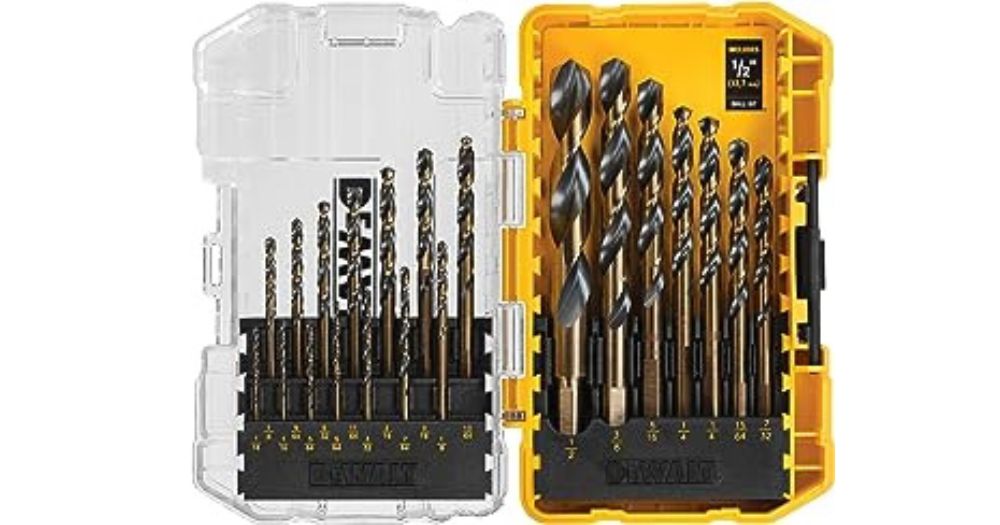 | DEWALT Drill Bit | 5.0 |
| 2 | 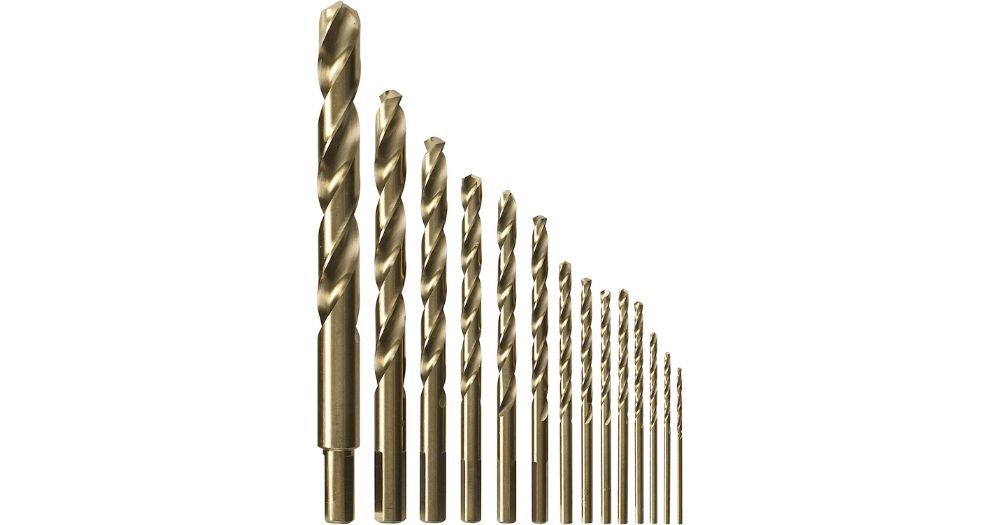 | Bosch CO14B | 4.5 |
| 3 | 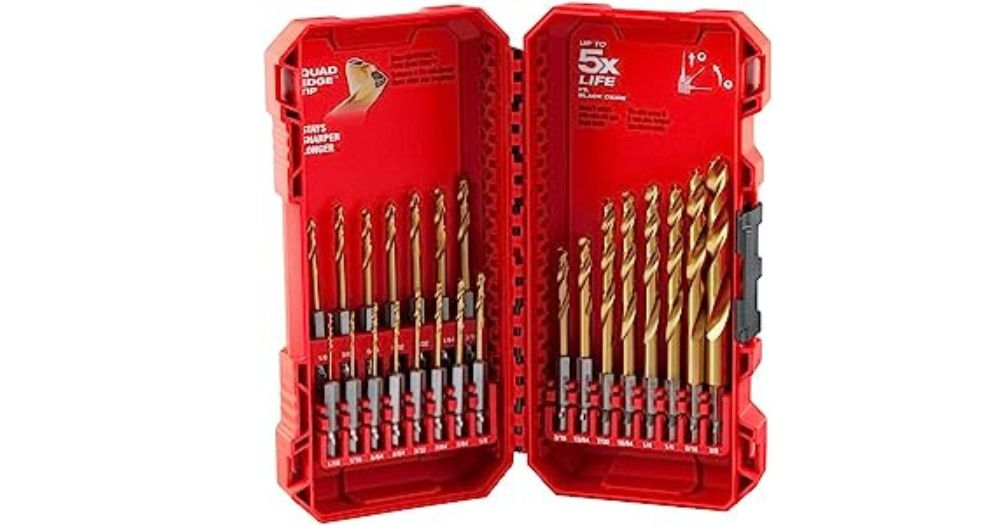 | Milwaukee 48-89-4631 | 4.0 |
Types of Drill Bits Suitable for Drilling Out Locks
Alright, by now, you’re probably convinced that the drill bit you choose is more than just a minor detail—it’s a critical component of your toolkit. But what are your options? Over the years, I’ve tried and tested various types, and I’ve narrowed it down to three main categories that are best suited for drilling out locks. Let’s dive in.
High-Speed Steel (HSS) Drill Bits
First on the list are High-Speed Steel (HSS) drill bits. These are the everyday heroes of the drill bit world. Made from carbon steel and often fortified with elements like tungsten or chromium, these bits offer a good balance of hardness and heat resistance. They’re my go-to for drilling into softer metals like brass, which you’ll often encounter in residential locks.
Pros:
- Versatility: These bits are the jack-of-all-trades, suitable for a range of metals.
- Cost-Effectiveness: If you’re on a budget, these bits offer good performance without costing an arm and a leg.
- Availability: You can find HSS bits at any hardware store, making them easy to replace if you’re in a pinch.
Cons:
- Limited Lifespan on Harder Materials: While they’re great for softer metals, they tend to wear out faster when you’re dealing with harder materials.
- Heat Sensitivity: They can lose their edge under high heat, so they’re not ideal for long drilling sessions.
Personal Tip: If you’re a DIYer or someone who occasionally needs to drill out a lock, HSS bits are a solid choice. Just make sure to keep a few extras on hand, as they can wear out quicker than you’d like.
Cobalt Drill Bits
When I need to step up my game, I turn to Cobalt drill bits. These are not to be confused with HSS-Co bits, which are essentially HSS bits with a dash of cobalt. No, these are made from solid cobalt alloys and are designed for the tough jobs. They’re especially useful for drilling into hardened steel, which you’ll often find in high-security locks.
Pros:
- Heat Resistance: These bits can handle the heat, making them ideal for jobs that require prolonged drilling.
- Durability: They last longer than HSS bits, especially when you’re working with hard materials.
- Hard Material Compatibility: These are my go-to bits when I’m up against locks made from hardened steel.
Cons:
- Cost: They’re pricier than HSS bits, so they might not be the best choice for one-off jobs.
- Brittleness: While they’re hard, they can also be brittle, so they’re not ideal for angled drilling.
Personal Tip: If you’re a professional locksmith or someone who frequently deals with high-security locks, investing in a set of Cobalt drill bits is a wise move.
Carbide Drill Bits
Finally, we have the titans of the drill bit world: Carbide drill bits. These bits are made from tungsten carbide and are the hardest and most durable bits you can find. I typically reserve these for commercial applications where I’ll be drilling out multiple locks in succession or dealing with exceptionally hard materials.
Pros:
- Extreme Durability: These bits are the last word in longevity. They can outlast both HSS and Cobalt bits.
- Heat Resistance: If you’re going for high-speed drilling, these bits can handle the heat without losing their edge.
- Hard Material Compatibility: When other bits fail, Carbide bits come to the rescue. They can drill through almost anything.
Cons:
- Cost: These bits are an investment. They’re the most expensive of the lot.
- Brittleness: Despite their hardness, they’re also very brittle. They’re not suitable for angled drilling or any application that requires flexibility.
Personal Tip: If you’re in the business of drilling out locks and need a bit that can handle anything you throw at it, Carbide drill bits are the way to go. Just be prepared to invest, as quality comes at a price.
So, there you have it—my comprehensive guide to the types of drill bits that are up to the task of drilling out locks. Each type has its own set of advantages and disadvantages, so your choice will depend on your specific needs, the materials you’re working with, and how frequently you’ll be using them. Choose wisely, and your drill bit won’t just be a tool; it’ll be your trusted ally in getting the job done right.
Watch This Video And Learn About Top 3 Best Drill Bits For Drilling Out Locks In 2023
Related Post: How To Drill A Hole In Glass With A Regular Drill Bit :In 5 Quick Steps
Factors to Consider When Choosing the Best Drill Bits
So, you’ve got the basics down, right? You know your HSS from your Cobalt and Carbide. But before you hit that ‘Buy Now’ button, let’s talk about some finer points that can make or break your drilling experience. Trust me, these details matter.
Material: It’s Not Just Metal; It’s Science
When I say the material of your drill bit is crucial, I mean it’s the foundation of everything you’re about to do. It’s not as simple as saying, “Metal is metal.” Oh no, each type of metal has its own quirks.
- Soft Metals: If I’m tackling a residential lock, which is often made of softer metals like brass, I usually reach for my trusty HSS drill bits. They’re versatile and won’t have you breaking the bank.
- Hard Metals: Now, if I’m up against a high-security lock made of hardened steel, I need to bring out the big guns. That’s where Cobalt and Carbide drill bits come into play.
My Two Cents: Think long-term. If you’re like me and find yourself drilling into various types of locks, investing in a set of Cobalt or even Carbide drill bits is a smart move.
Length: Size Does Matter
The length of your drill bit is more important than you might think. I’ve learned this the hard way.
- Short Bits: I prefer shorter bits when I need more control. They’re less likely to wobble, which is crucial when you’re aiming for specific parts of a lock mechanism.
- Long Bits: But sometimes, especially with complex locks like deadbolts, you need that extra reach. Just be careful; longer bits can be trickier to handle.
My Two Cents: Always assess the lock you’re dealing with. A padlock or a simple door lock? A shorter bit should do. But for those pesky deadbolts or more complex mechanisms, you’ll likely need a longer bit.
Coating: The Cherry on Top
Last but not least, let’s talk about something most people overlook: the coating on the drill bit. It might seem trivial, but from my experience, the right coating can be a game-changer.
- Reduced Friction: Coatings like titanium nitride (TiN) make the drilling process smoother and generate less heat. This is a lifesaver for those long drilling sessions.
- Increased Durability: A good coating can actually extend your drill bit’s life. More drilling for your dollar, if you ask me.
- Corrosion Resistance: If you’re storing your drill bits in a place exposed to moisture—like my old garage—a rust-resistant coating can be a real lifesaver.
My Two Cents: If you’re a professional locksmith or even a weekend warrior like me, don’t cut corners on the coating. It’s a small upfront cost for a longer-lasting and more efficient drill bit.
So, there you have it—my personal, in-depth guide on what to look for when you’re choosing the best drill bits for drilling out locks. Remember, it’s all in the details. Each of these factors can make a significant difference in how effective, durable, and safe your drilling will be. Choose wisely, and you’ll be more than ready for whatever lock challenges come your way.
Best Drill Bits For Drilling Out Locks
So, you’re armed with all the knowledge you need to pick the right drill bit, but you’re probably wondering, Which brands can I trust? I’ve been in your shoes, and over the years, I’ve found a few brands that consistently deliver. Here are my top recommendations for the best drill bits for drilling out locks.
1:DEWALT Drill Bit
DeWalt is a name that’s synonymous with quality and durability. I’ve been using their Cobalt drill bits for years, especially when I’m up against those high-security locks that need a bit more muscle.

The DEWALT DWA1181 21-Piece Drill Bit Set, a versatile and durable addition to your toolbox. Crafted from High-Speed Steel and finished with Black Oxide, this set is designed for longevity and high performance. The straight shank type ensures a secure grip, while the 135-degree cutting angle and parabolic flute type offer efficient drilling. With dimensions of 8.8 x 8.8 x 1.3 inches and a weight of just 1 pound, this compact set is easy to store and transport.
The split-point style ensures precise starts, eliminating the need for a center punch. This drill bit set is perfect for a wide range of surfaces, including fiberglass, metal, plastic, PVC, and wood. Manufactured by DEWALT, a trusted name in tools, and originating from China, this product comes with a 21-piece drill bit set and does not require batteries.
Pros:
- High-Quality Material: Made from High-Speed Steel for durability.
- Versatile: Suitable for drilling into various materials like fiberglass, metal, plastic, and more.
- Efficient Design: 135-degree cutting angle and parabolic flute for better drilling performance.
- Trusted Brand: Manufactured by DEWALT, a reputable name in the tool industry.
- Compact and Lightweight: Easy to store and transport.
Cons:
- Country of Origin: Some users may prefer products not made in China.
- No Batteries Included: Not an issue for manual drills but could be a downside for those who prefer battery-operated tools.
- Single Package Quantity: Only one set per package, which may not be sufficient for larger projects.
My Two Cents: If you’re a professional locksmith or you’re serious about your DIY projects, DeWalt Cobalt bits are a worthy investment. The initial cost is higher, but they pay for themselves in durability and performance.
2: Bosch CO14B
Bosch is another brand that’s earned my trust. Their High-Speed Steel (HSS) bits are my first choice for residential locks, particularly those made from softer metals like brass.

The set comes in a compact package measuring 8.86 x 4.49 x 1.65 inches and weighing just 1 pound, making it convenient for storage and transport. Manufactured by BOSCH, a leader in the tool industry, this 14-piece set includes a case for easy organization and is backed by a warranty covering product defects.
Pros:
- Superior Material: Crafted from Stainless Steel and Cobalt for enhanced durability.
- High-Performance Finish: Titanium coating for extended tool life.
- Secure Grip: 3-Flat shank type minimizes slippage during high-torque drilling.
- Efficient Drilling: 135-degree cutting angle and spiral flute design for optimal performance.
- Specialized Surface Recommendation: Ideal for drilling into hard materials like cast iron and stainless steel.
Cons:
- Country of Origin: Made in China, which may be a concern for some users.
- Limited Warranty: Covers only product defects, not wear and tear.
- Single Package Quantity: Comes as a 14-piece set, which may not be enough for larger, more complex projects.
- No Batteries Required: Not an issue for manual drills but could be a downside for those who prefer battery-operated tools.
My Two Cents: If you’re just starting out or you need a reliable set of bits for less demanding jobs, you can’t go wrong with Bosch. They’re affordable, versatile, and widely available, making them a solid choice for most situations.
3: Milwaukee 48-89-4631
Milwaukee is the brand I turn to when I’m faced with the toughest drilling challenges. Their Carbide bits are in a league of their own.

The Milwaukee 48-89-4631 Titanium Impact Drill Bit Set, a premium solution for all your drilling needs. Made from high-quality Titanium and coated with Black Oxide, this 23-piece set offers both durability and performance. The spiral flute design, combined with a 135-degree cutting angle, ensures efficient and precise drilling.
k Measuring 4.2 x 11 x 11.4 inches and weighing just 8 ounces, this set is both compact and lightweight, making it easy to store and carry. Manufactured by MILWAUKEE ELECTRIC TOOL, a trusted name in the industry, this set comes with a storage case for easy organization and is compatible with Lithium-Ion batteries, although batteries are not required or included.
Pros:
- High-Quality Material: Made of Titanium for long-lasting durability.
- Efficient Drilling: 135-degree cutting angle and spiral flute design for optimal performance.
- Lightweight and Compact: Easy to store and transport.
- Comprehensive Set: Comes with 23 Titanium Impact Bits, offering a wide range of options for various drilling tasks.
- Trusted Brand: Manufactured by MILWAUKEE, a reputable name in the tool industry.
Cons:
- Batteries Not Included: Although the set is compatible with Lithium-Ion batteries, they are not included.
- Single Package Quantity: Only one 23-piece set per package, which may not be sufficient for larger projects.
- No Extended Warranty: The product does not mention an extended warranty, which might be a concern for some users.
My Two Cents: For commercial applications or when you’re dealing with exceptionally hard materials, Milwaukee Carbide bits are the cream of the crop. They’re an investment, but one that pays off in unparalleled performance and durability.
So, there you have it—my expanded, in-depth recommendations for the best drill bits for drilling out locks. Each brand has its unique strengths and weaknesses, so your choice will depend on your specific needs, the types of locks you’re dealing with, and how frequently you’ll be using them. Make an informed choice, and you’ll be well-prepared for any lock-drilling challenge that comes your way.
Take a look at some of my related articles below.
- How To Make A Hole In An Acrylic Sheet Without A Drill In 2023
- Best Glass Drill Bits
- The 3 Best Drill Bits For Ceramic Pots
Tips for Using Drill Bits Effectively
So you’ve got your premium drill bits, and you’re itching to get drilling. But hold on a second—knowing how to use those bits effectively is just as important as having quality bits in the first place. Here are some of my tried-and-true tips for getting the most out of your drill bits.
Safety Measures: An Ounce of Prevention
I can’t stress this enough: safety first, always. I’ve seen minor oversights lead to major accidents, and trust me, you don’t want to learn these lessons the hard way.
- Eye Protection: I never start drilling without my safety goggles. Metal shavings and debris can fly unexpectedly, and your eyes are irreplaceable.
- Gloves: I recommend gloves that offer a good grip along with protection. This helps you hold the drill securely while shielding your hands from hot metal and sharp edges.
- Secure the Lock: Whether it’s a padlock or a door lock, make sure it’s held firmly in place. I often use a vise for smaller objects or sturdy clamps for larger ones.
- Check Your Surroundings: Before I start, I always scan my workspace for any flammable materials, liquids, or any other potential hazards. A single spark can cause a lot of damage.
My Two Cents: Safety isn’t just about gear; it’s about awareness and preparation. Take a few extra minutes to set up your workspace safely—it’s time well spent.
Proper Technique: The Difference Between Success and Failure
You’d be surprised how many people think drilling is just about pushing a spinning bit into metal. But there’s a lot more nuance to it, and the right technique can save you time, effort, and even your drill bits.
- Start Slow: I always start at a low speed to create what’s called a ‘pilot hole.’ This small indentation serves as a guide and helps keep the bit from wandering as you drill deeper.
- Steady Pressure: Consistent, moderate pressure is key. Too much force, and you risk snapping your bit; too little, and you’ll be there all day. Find that sweet spot where the bit is cutting effectively without straining.
- Cool Down: If I’m drilling for an extended period or through hard material, I stop every so often to let the bit cool. Sometimes, I even use a bit of cutting oil to reduce heat and friction.
- Check Your Progress: Every few minutes, I pull the bit out and clear away any metal shavings. This not only keeps the bit from clogging but also lets me assess how far I’ve gone and how much further I need to go.
- Post-Drilling Care: After the job is done, I make it a point to clean my drill bits thoroughly and store them in a dry place. Proper maintenance can significantly extend the life of your bits.
My Two Cents: Good technique is a blend of skill, awareness, and patience. Take your time to do it right. Your drill bits will last longer, and your locks will open more smoothly.
So, there you have it—my expanded guide on how to use drill bits effectively. Whether you’re a seasoned locksmith or just getting started in the world of DIY, these tips will help you work more efficiently and safely. Remember, the right tools are only as good as the hands that wield them. Happy drilling!
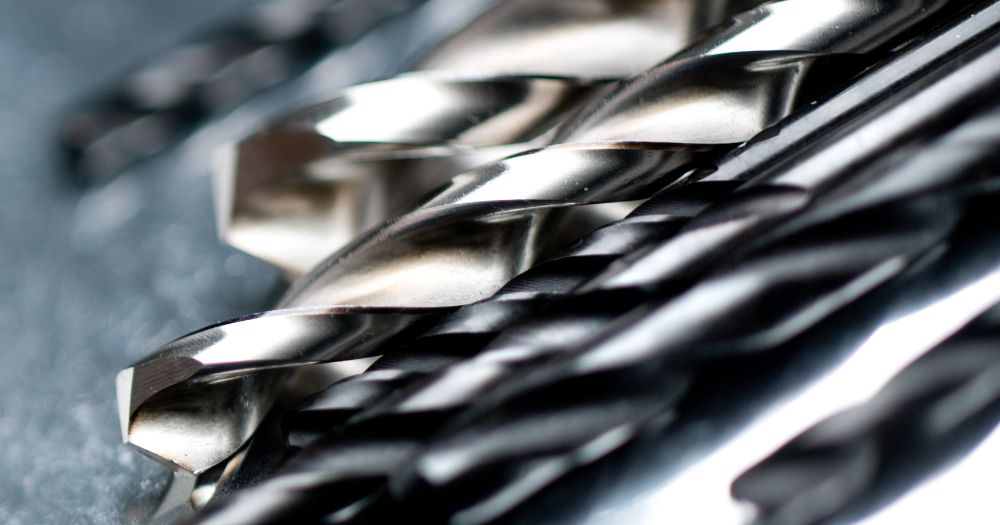
FAQs
I know that diving into the world of drill bits and lock drilling can bring up a lot of questions. That’s why I’ve put together this FAQ section to address some of the most common queries you might have. These answers aim to provide quick, straightforward information that can help you make informed decisions, and they’re optimized for Google’s People Also Ask (PAA) feature to make it easier for you to find what you’re looking for.
What is the Best Material for Drill Bits When Drilling Out Locks?
The best material for drill bits depends on the type of lock you’re dealing with. For softer metals like brass, High-Speed Steel (HSS) drill bits are usually sufficient. For harder metals like hardened steel, you’ll want to go for Cobalt or Carbide drill bits. These materials offer the durability and cutting power needed for tougher jobs.
How Do I Choose the Right Length and Coating for My Drill Bit?
The right length depends on the specific lock you’re working on. Shorter bits offer more control and are ideal for simpler locks, while longer bits are necessary for more complex locking mechanisms. As for coatings, titanium nitride (TiN) is great for reducing friction and heat, while black oxide offers rust resistance. Your choice should align with the demands of your drilling task and the conditions in which you’ll be storing your bits.
Are Expensive Drill Bits Really Worth the Investment?
In my experience, investing in high-quality drill bits pays off in the long run. While they may be more expensive upfront, their durability, performance, and safety features often make them more cost-effective over time. Brands like DeWalt, Bosch, and Milwaukee offer drill bits that are engineered for longevity and effectiveness, making them a wise investment for anyone serious about drilling out locks.
I hope these FAQs have cleared up any lingering questions you may have. If you’re still curious about something, feel free to reach out. Knowledge is power, especially when it comes to drilling out locks!
Unlocking The Secrets To Effective Drilling With The Top 3 Best Drill Bits For Drilling Out Locks In 2023
So here we are, at the end of this comprehensive journey through the world of drill bits for drilling out locks. I’ve laid out all the details, from the importance of material and coatings to the subtleties of length and brand choices. And let’s not forget the safety measures and techniques that can take your drilling skills from zero to hero.
In-Depth Key Takeaways:
- Material is King: Trust me, the material of your drill bit isn’t a trivial matter—it’s the foundation of your entire drilling project. Whether it’s softer metals like brass or the fortress-like hardened steel, picking the right material can make your life a whole lot easier—or harder.
- Don’t Skimp on Length and Coating: You might think these are just minor details, but I’ve found they can significantly affect your drilling experience. The right length gives you the perfect blend of control and reach, while a durable coating can make your drill bit last much longer, giving you more value for your money.
- Brands Do Matter: I’ve tried and tested various brands, and DeWalt, Bosch, and Milwaukee have consistently come out on top. DeWalt is my first choice for those high-security, hardened locks; Bosch is my everyday hero for residential locks; and when I need to bring out the big guns, it’s Milwaukee all the way.
- Safety Isn’t Optional: I can’t emphasize this enough—never, ever compromise on safety. Always suit up with the right gear and double-check your workspace to ensure it’s free from hazards.
- Master the Art of Drilling: Drilling isn’t just about power; it’s about finesse. From the initial pilot hole to the steady pressure and periodic cool-downs, each step plays a crucial role in ensuring an efficient and safe drilling operation.
My Final Words and Recommendations:
If you’re as passionate about drilling out locks as I am, whether you’re a seasoned pro or an eager newbie, don’t cut corners when it comes to the quality of your drill bits. Yes, they might be pricier upfront, but the payoff in performance, durability, and safety is well worth it.
Once you’ve got your hands on those high-quality bits, don’t just let them collect dust. Use them to their fullest potential by adhering strictly to safety protocols and refining your drilling technique. Remember, the best tools in the world are useless if you don’t know how to use them properly.
So the next time you find yourself standing in front of a locked door, drill at the ready, know that you’re armed with more than just a tool. You’ve got the knowledge, the preparation, and most importantly, the perfect bit for the job. With all these elements in your arsenal, there’s no lock that can stand in your way.
Here’s to your next drilling adventure—may each turn of your drill bit bring you one step closer to mastering the art of lock drilling!

